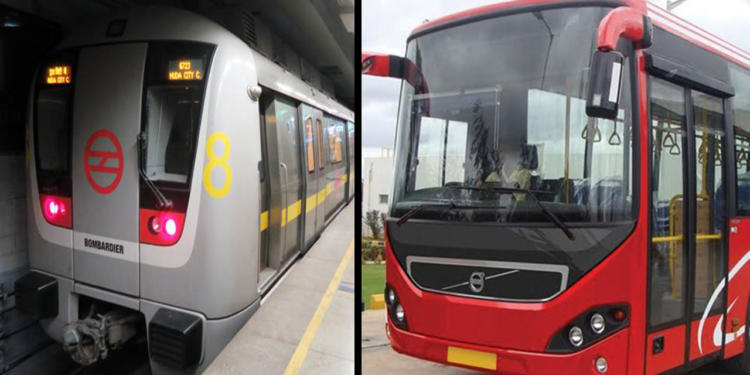PM Modi launched the National Common Mobility Card (NCMC) at a public rally in Ahmedabad, Gujarat. The card was launched under ‘One Nation One Card’ scheme which envisages a common card for Bus, Metro, Suburban Transport, and could be used for retail payments as credit/debit card across the country. “This card runs on RuPay card and it will eliminate all your travel related problems. Many times, we do not have change to pay in cash while travelling in metro, bus or train, or for toll and parking. To overcome this issue, an automatic fare collection system was introduced,” said PM Modi.
The National Urban Transport Policy (NUTP), 2006 has a provision to provide citizens of the country one such card. But the poor execution ability of Congress government was displayed in the implementation of the policy. The infrastructural work to provide people one such card started only after the Modi government came to power and at the end of the term it became a reality.
PM Modi at a rally in Ahmedabad: After many attempts, One Nation-One Card will become a reality. You will be able to withdraw money, will be able to shop and travel in a metro or use other means of transportation, using a common mobility card. #Gujarat pic.twitter.com/tTxAf5Eogj
— ANI (@ANI) March 4, 2019
“It is a matter of pride that this card, based on NCMC standards is compliant with the ‘Make in India’ initiative. The gate and reader prototype has been made by government-owned Bharat Electronics Limited (BEL). Translating Hon’ble PM’s vision of One Nation One Card it will work seamlessly across Metro, Bus rapid transit (BRT), city bus, suburban rail, parking, toll etc. All Debit/Credit Cards will be NCMC compliant,” said Union Urban Affairs Secretary, Durga Shanker Mishra. “The NCMC ecosystem offers the value proposition for customers as they need not to carry multiple cards for different usage. Further, the super-quick, contactless transaction will improve the seamless experience,” he added.
The card could be issued by any public or private bank like credit/debit card. The billing mechanism and software platform for the common card will be same as other credit/debit card. The Urban Affairs Ministry formed a committee with members from National Informatics Centre (NIC), Centre for Development of Advance Computing (C-DAC), Bureau of Indian Standards (BIS), National Payment Corporation of India (NPCI) and the ministry of finance to create infrastructure for the card.
The pace of urbanization in India is one of the fastest in the world. While inter-city connectivity has become very good over the decades in the country, intra-city connectivity is still a major problem. India could not grow fast enough until we solve the intra-city transportation system. Cities like Mumbai which still does not have a robust public transport system except the local trains. Mumbai has a very short Metro network which connects central suburban railway to western suburban railway line. Metro network is still not widespread in the city. The traffic of Bangalore is the most famous aspect of the city except its acknowledgment as an Information Technology hub.
The focus to enhance intra-city connectivity and public transport will be helpful in the growth of cities. Urbanization is a natural course of development as the economy of the country grows, people want to live in cities where most of the opportunities are available. The positive outlook towards urbanization will help in the economic growth of the country and will also improve the quality of life in Indian cities. Public transport is the most crucial factor for the growth of cities and if the government could simplify the commuting process through ‘One Nation, One Card’ policy, it will be a great gift to people of the country.





















